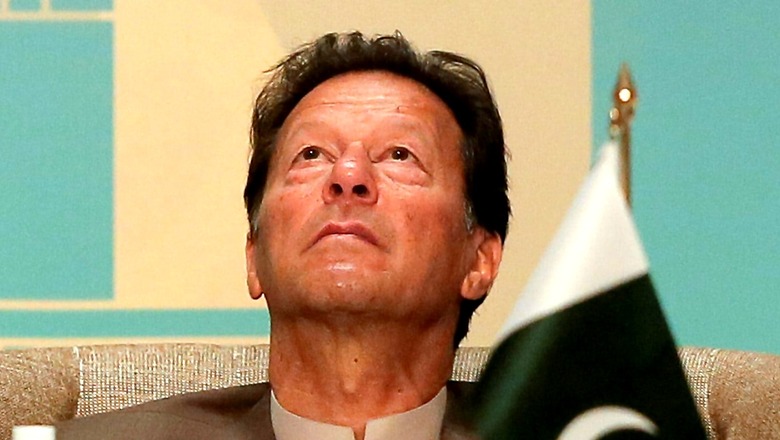
views
Leaders of Jammu Kashmir National Awami Party (JKNAP) and Jammu Kashmir National Students Federation were released unconditionally from Rawalakot prison in Pakistan-occupied Jammu Kashmir (PoJK) on March 9. They had been arrested on March 2 after they had successfully observed a sit-in at the gate of the Commissioner’s office. They were demanding the removal of all additional taxes levied on electricity bills and the restoration of subsidies on wheat in PoJK.
Addressing a hurriedly called party meeting after his release, the leader of JKNAP, Liaquat Hayat, said that on March 12, a dharna will be observed again and that on the same day protests will be held in all major districts of PoJK.
In Pakistan-occupied Gilgit-Baltistan, the mood of the public has been charged for more than three years now. Lack of clean drinking water, deteriorating health facilities available in district headquarter hospitals and unscheduled load shedding for long hours have forced the people of PoGB to hold protests on a daily basis in cities of Gilgit, Skardu, Astore and Hunza to mention a few.
Last month the Prime minister of Pakistan Imran Khan announced that on March 23, PoGB will be incorporated as the fifth provisional province of Pakistan. This announcement transformed the nature of public discontent from social unrest to political agitation. The people of PoGB have outrightly rejected Imran Khan’s proposal.
On March 4 a suicide bomb attack on a Shia mosque in Peshawar claimed more than 60 lives. Among the fatalities was a young geologist from PoGB. Since PoGB is a predominantly Shia majority region, protests against the targeted attack on a Shia mosque rocked the occupied territory.
So now we have people from both PoJK and PoGB who are living under the illegal occupation of Pakistan and who are thoroughly engaged in civil unrest not only against economic, political and social injustice but also against religious extremism.
Also Read: Opinion: Pakistan-occupied Kashmir Calls Narendra Modi for Help
Pakistan was created on the basis of Muhammed Ali Jinnah’s two-nation theory, which is communal by definition. It is on the basis of the two-nation theory that Pakistan has kept the people of PoJK/GB under her iron clad. But now this narrative is getting hard to sell.
Looking at the plunder of their natural resources by the Pakistani military establishment and big bureaucracy, the people of the above-mentioned regions have moved on from being suspicious to outrightly accusing Pakistan of denying them their economic and political rights and ignoring Pakistani propaganda that India is their real enemy.
Last week at a press conference held in Rawalakot pro-Pakistan jihadist leaders announced that a new terrorist outfit is being set up. It is called Freedom Brigade 313. It was proclaimed that by the end of April this year the brigade aims to raise a militia of ten thousand young men. They announced that the brigade will be joining the Pakistan army in attacking India to free Kashmir.
Meanwhile, Pakistan military officers are said to be visiting colleges in the Poonch region of PoJK. They are delivering lectures and bringing students to the military bases and letting them familiarise themselves with weapons and ammunition.
This could be a preparation for the next spring and summer offensive against India launched by Jihadi Pakistan. The fact that a militia is being allowed to recruit openly in Rawalakot and Bagh districts and goes unchallenged by the government, and that in the same territories, when Kashmiri people hold protests against load shedding, taxes on electricity and cuts on subsidies on wheat, and are being arrested and thrown behind bars, says it all.
Pakistan is no friend of the Kashmiri people. It was Pakistan which despite signing a Stand-Still Agreement with the Maharaja of Jammu Kashmir launched an unprovoked attack on the state on October 22, 1947.
And it is Pakistan that has been bleeding Kashmir by sending Jihadi terrorists into the valley who played an instrumental role in the genocide of the Kashmiri Pandits and their forced migration.
As the 49th session of the United Nations Human Rights Council begins in Geneva this winter, I hope that all presentations made by the human rights activists from PoJK and PoGB will highlight the hypocrisy and the true nature of Pakistani aggression and its plot for further perpetrating violence in the Vale of Kashmir.
Dr Amjad Ayub Mirza is an author and a human rights activist from Mirpur in PoJK. He currently lives in exile in the UK. The views expressed in this article are those of the author and do not represent the stand of this publication.
Read all the Latest Opinion News and Breaking News here


















Comments
0 comment